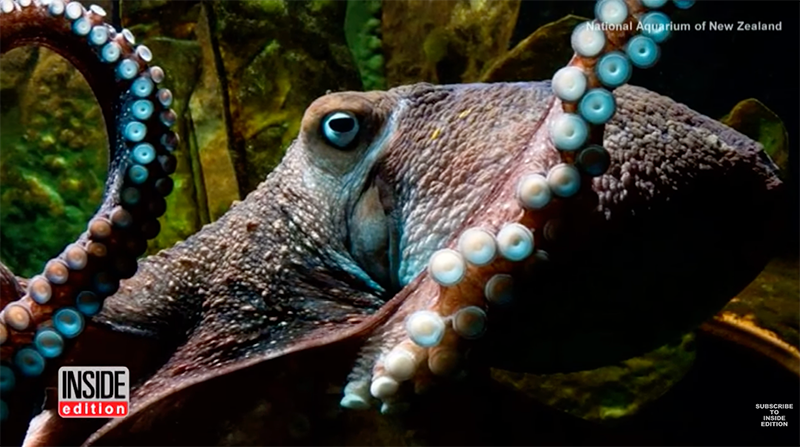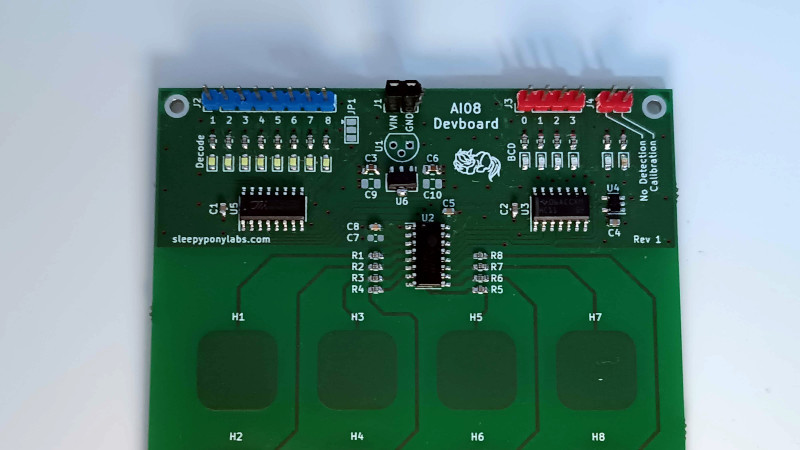Another path to intelligence
 Explore
Explore
It turns out there are many ways to "make" intelligence, and this is evident even in the monkeys and apes that roost near us on the evolutionary tree. This awareness takes on a completely different character when we think of these non-human intelligences which are very different from us. Because there are other highly evolved, intelligent, and rambunctious creatures on this planet that are so distant and so different from us that researchers consider them to be the closest alien-like things we've ever encountered: cephalopods. /p>
Cephalopods, the family of creatures that includes octopuses, squids, and cuttlefish, are one of nature's most intriguing creations. They are all soft-bodied, containing no skeleton, only a hardened beak. They are aquatic, although they can survive for some time in the air; some are even capable of short flights, powered by the same jets of water that move them across the ocean. They do strange things with their members. And they are very intelligent, by far the most intelligent of the invertebrates, in every way.
Octopuses in particular seem to like to demonstrate their intelligence when we try to capture, hold or study them. In zoos and aquariums, they are known for their tireless and often successful escape attempts. A New Zealand octopus named Inky made headlines around the world when he escaped from the Napier National Aquarium by climbing over his tank's overflow valve, running eight feet across the floor and sliding down a narrow 106-foot drainpipe into the ocean. At another aquarium near Dunedin, an octopus called Sid made so many escape attempts, including hiding in buckets, opening doors and climbing stairs, that he was eventually released back into the ocean . They have also been accused of flooding aquariums and stealing fish from other aquariums: such stories date back to some of the first octopuses kept in captivity in Britain in the 19th century and are still repeated today .
 ESCAPE ARTISTS: Inky the octopus objected to his captivity and escaped through a narrow drainpipe one night. Here he is pictured in footage taken before his great escape. Video still courtesy of Inside Edition / YouTube.
ESCAPE ARTISTS: Inky the octopus objected to his captivity and escaped through a narrow drainpipe one night. Here he is pictured in footage taken before his great escape. Video still courtesy of Inside Edition / YouTube.Otto, an octopus living in the SeaStar aquarium in Coburg, Germany, first came to media attention when he was caught juggling hermit crabs. Another time, he smashed rocks against the side of his tank and, from time to time, completely rearranged the contents of his tank "to better suit his tastes", according to the aquarium manager. Once, the electricity in the aquarium kept cutting out, which threatened the lives of other animals as the filter pumps stopped. On the third night of the power outages, staff began doing night shifts sleeping on the floor to find out the source of the problem - and discovered Otto was swinging atop his tank and squirting water on a low light bulb that seemed to annoy him. He had figured out how to turn off the lights.
Octopuses are no less challenging in the lab. They don't seem to like being experimented and try to make things as hard as possible for seekers. In a lab at the University of Otago in New Zealand, an octopus discovered the same trick as Otto: it squirted water on light bulbs to turn them off. Eventually, it became so frustrating to continually have to replace bulbs that the culprit was released into the wild. Another octopus from the same lab took a personal dislike to...

 Explore
Explore
It turns out there are many ways to "make" intelligence, and this is evident even in the monkeys and apes that roost near us on the evolutionary tree. This awareness takes on a completely different character when we think of these non-human intelligences which are very different from us. Because there are other highly evolved, intelligent, and rambunctious creatures on this planet that are so distant and so different from us that researchers consider them to be the closest alien-like things we've ever encountered: cephalopods. /p>
Cephalopods, the family of creatures that includes octopuses, squids, and cuttlefish, are one of nature's most intriguing creations. They are all soft-bodied, containing no skeleton, only a hardened beak. They are aquatic, although they can survive for some time in the air; some are even capable of short flights, powered by the same jets of water that move them across the ocean. They do strange things with their members. And they are very intelligent, by far the most intelligent of the invertebrates, in every way.
Octopuses in particular seem to like to demonstrate their intelligence when we try to capture, hold or study them. In zoos and aquariums, they are known for their tireless and often successful escape attempts. A New Zealand octopus named Inky made headlines around the world when he escaped from the Napier National Aquarium by climbing over his tank's overflow valve, running eight feet across the floor and sliding down a narrow 106-foot drainpipe into the ocean. At another aquarium near Dunedin, an octopus called Sid made so many escape attempts, including hiding in buckets, opening doors and climbing stairs, that he was eventually released back into the ocean . They have also been accused of flooding aquariums and stealing fish from other aquariums: such stories date back to some of the first octopuses kept in captivity in Britain in the 19th century and are still repeated today .
 ESCAPE ARTISTS: Inky the octopus objected to his captivity and escaped through a narrow drainpipe one night. Here he is pictured in footage taken before his great escape. Video still courtesy of Inside Edition / YouTube.
ESCAPE ARTISTS: Inky the octopus objected to his captivity and escaped through a narrow drainpipe one night. Here he is pictured in footage taken before his great escape. Video still courtesy of Inside Edition / YouTube.Otto, an octopus living in the SeaStar aquarium in Coburg, Germany, first came to media attention when he was caught juggling hermit crabs. Another time, he smashed rocks against the side of his tank and, from time to time, completely rearranged the contents of his tank "to better suit his tastes", according to the aquarium manager. Once, the electricity in the aquarium kept cutting out, which threatened the lives of other animals as the filter pumps stopped. On the third night of the power outages, staff began doing night shifts sleeping on the floor to find out the source of the problem - and discovered Otto was swinging atop his tank and squirting water on a low light bulb that seemed to annoy him. He had figured out how to turn off the lights.
Octopuses are no less challenging in the lab. They don't seem to like being experimented and try to make things as hard as possible for seekers. In a lab at the University of Otago in New Zealand, an octopus discovered the same trick as Otto: it squirted water on light bulbs to turn them off. Eventually, it became so frustrating to continually have to replace bulbs that the culprit was released into the wild. Another octopus from the same lab took a personal dislike to...
What's Your Reaction?















![Three of ID's top PR executives quit ad firm Powerhouse [EXCLUSIVE]](https://variety.com/wp-content/uploads/2023/02/ID-PR-Logo.jpg?#)







